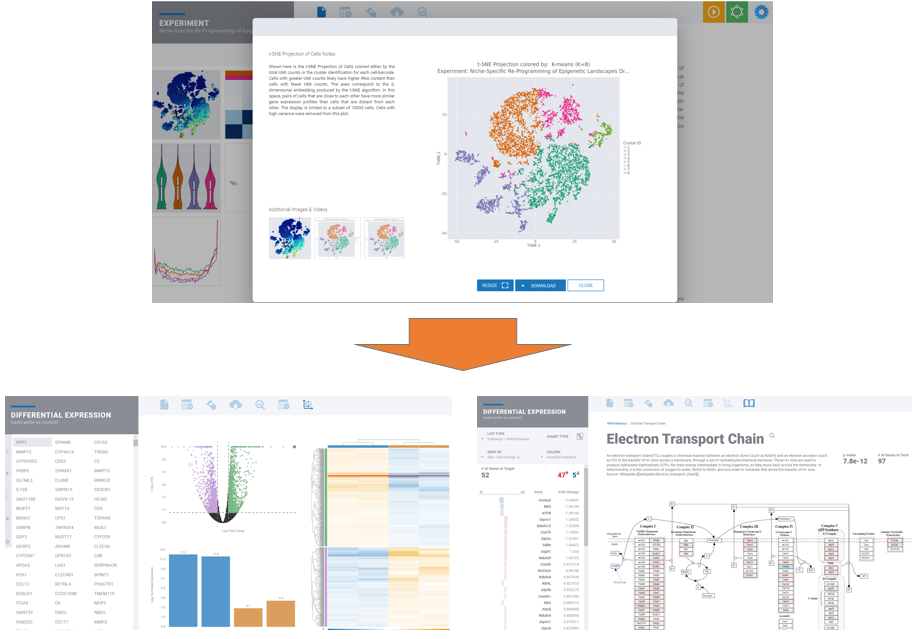Single Cell Gene Expression studies are becoming an essential tool for understanding the complex interplay of cells in both healthy and diseased tissue. Thanks to huge strides forward in technologies enabling the partitioning and sequencing of individual cells, we are seeing an explosion of new Single Cell studies across a variety of fields. In many cases, it seems that the ability to produce data is outpacing the ability extract meaning from the data. ROSALIND is seeking to close this gap by accelerating upstream data processing and providing an intuitive user interface for downstream analysis of cell clusters.
ROSALIND utilizes cloud-scale data processing and an intuitive graphical user interface to make processing of 10x Genomics cell ranger datasets both faster and easier. Alignment, quantification, and download of default clustering results can be performed easily by non-expert users without the need for onsite computer processing power.
ROSALIND also supports downstream analysis of cell clusters generated in the 10x Loupe Browser. Cell clusters defined in Loupe can be compared with one another at the level of individual genes, pathways, drugs, other key terms. This unlocks the next era of Single Cell research which will focus on developing deep understanding of the biology of each cell type cluster in a given context and the identification of actionable markers.
.png?width=820&height=571&name=Single%20Cell%20(1).png)
We are excited to participate in the Single Cell Sequencing revolution and look forward to building on the capabilities we have already established by responding to the needs of our user base. We encourage you to try ROSALIND’s new Single Cell Analysis features and let us know what you think. Video tutorials can be found within the ROSALIND user interface and we are available to perform demos of the new functionality.
Related Posts
- OnRamp Bio and NanoString Announce Global Availability of ROSALIND® for nCounter Users
- Canopy Biosciences partners with OnRamp Bio to provide ROSALIND interactive data analysis for comprehensive gene expression services
- JOIN THE CORONAVIRUS COMMUNITY RESEARCH SPACE to begin exploring and contributing to the global community understanding of COVID-19 data.
- For all Research affected by Social Distancing: Remote Science in the Era of Social Distancing demonstrates how working remotely does not mean that science must stop.
- For Scientists on ROSALIND: Collaborating on Genomic Data is a walkthrough on how to set up real-time collaboration on genomic data (like Google Docs).
- For Directors and Managers: The Value is in Collaboration (not the pipeline) discusses how collaboration is key to empowering research in your lab.
- For every Researcher, Public Data exploration shows how we have made it 100x easier to work with public data than ever before.
- To learn more about our latest capabilities, Empowering Scientists with the ROSALIND Platform is an overview of all analysis types, species and features currently available to the general public on ROSALIND.
















